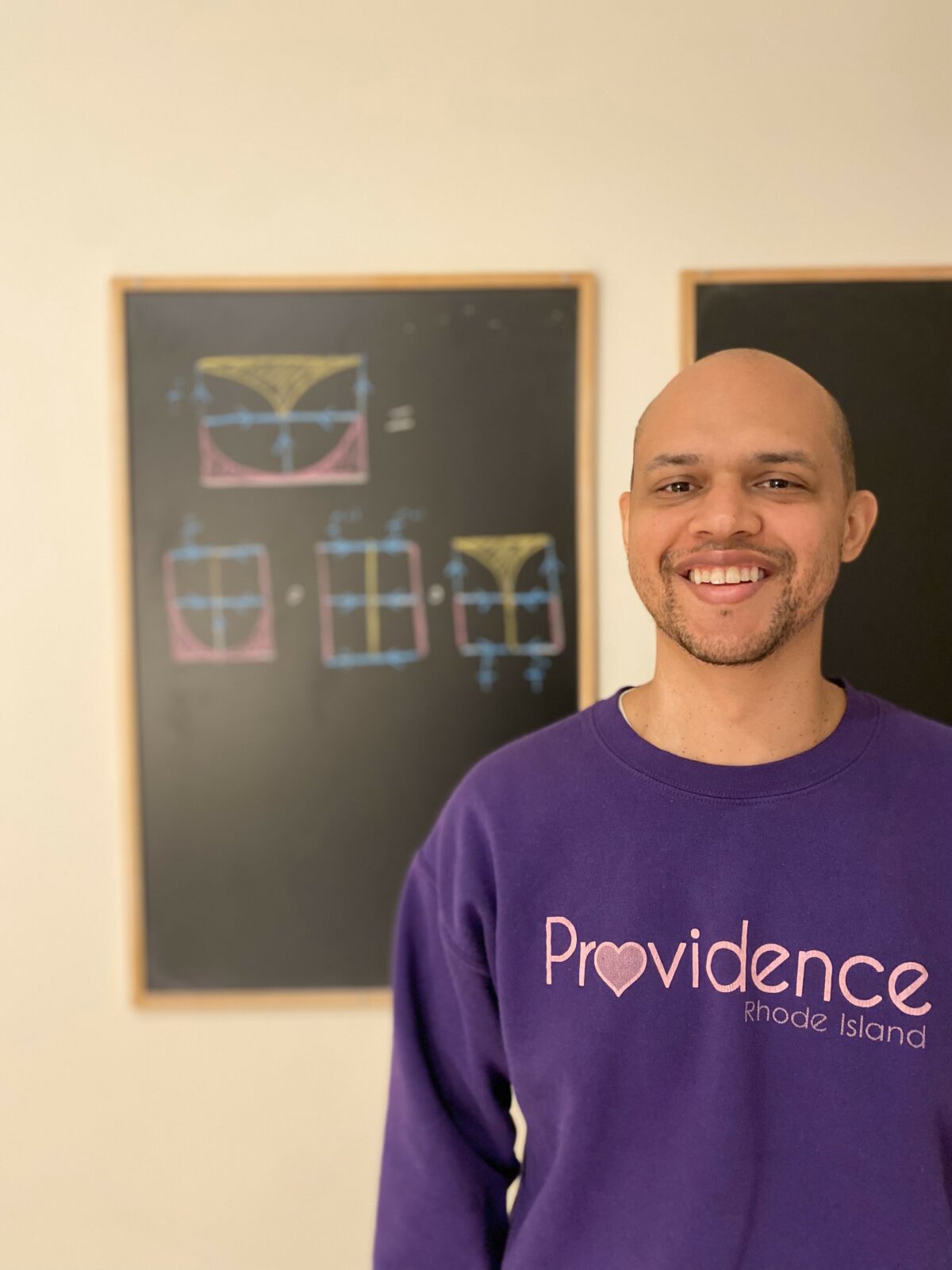
Bena Tshishiku
I grew up in Augusta, Georgia, the son of a high school math teacher from Chicago and an engineer from Congo. As a kid, I loved playing sports, especially basketball. In high school, I would take a basketball with me nearly everywhere, so I could practice dribbling. I also liked science and math, but I didn’t know what it meant to be a mathematician.
I first tried math research in the summer after my sophomore year of college. I worked on a problem in combinatorial topology at Washington and Lee University with Katherine Crowley. I loved it. My “aha moment” came at the end of the summer when I went to my first math conference, MathFest. The plenary talks by Erik Demaine blew my mind. I realized that math was a bustling world with lots of people that were as stoked about math as me. I had found a community and a career.
Today I still work in topology, primarily algebraic and geometric topology. That means I study manifolds, usually using more algebraic than analytic tools. One thing I enjoy about topology is that one can often gain intuition by drawing a good picture or diagram.
I’ve been lucky to learn from many people over the years, including my collaborators. I’m especially grateful to my thesis advisor Benson Farb, who taught me a lot in the early stages of my career and gave me tons of advice, both mathematical and professional.
For example, in grad school Benson repeatedly told me that I need to “encounter the math”. This was some sort of research mantra, and it took me a while to understand its many meanings. It includes the following. (1) There are levels of understanding a subject and many viewpoints, and it’s helpful to learn all of them. Related to this, I recommended reading Thurston’s “Proof and progress in mathematics”. (2) It’s often necessary to get your hands dirty with examples and computations, and to make your own narrative for how things fit together and were discovered. This is a way to develop your own way of thinking. (3) To make progress, identify the heart of a problem, and attack it. This part is least likely to be symbol pushing or abstract nonsense, although these are certainly helpful.
Overall encountering is something of a holistic approach to understanding. Go forth and encounter your math!
